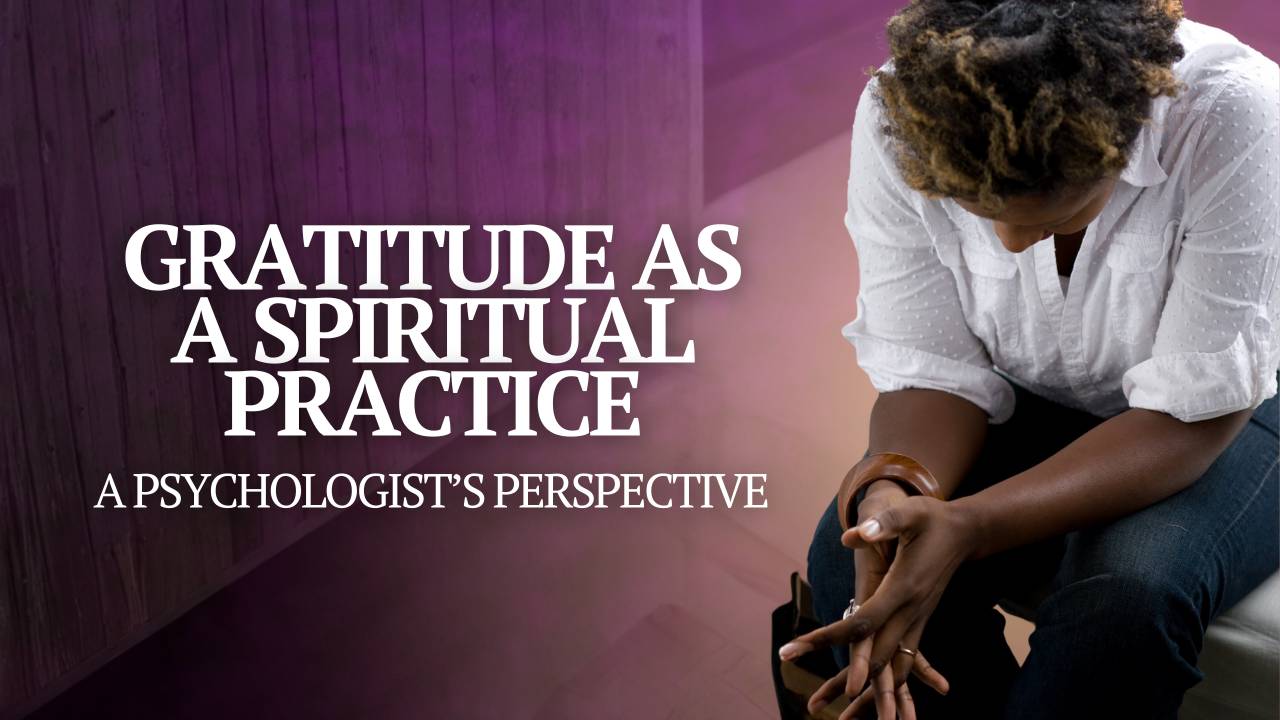Gratitude as a Spiritual Practice: A Psychologist’s Perspective
Nov 26, 2025
Some of my most powerful sessions as a psychologist are the ones that don’t end with answers, but with awe.
A client once sat quietly for a long time before saying, “I don’t know why I made it out and my brother didn’t. But I do know I want to live in a way that honors the life I still have.” It wasn’t a gratitude journal moment. It was a sacred one. And it reminded me how gratitude, when practiced as a way of being rather than a list of things, has the power to change everything.
Gratitude isn’t just a mental health tool—it can be a spiritual gateway. When we pause to notice something beautiful, offer thanks for breath or shelter, or witness the way life has held us even in hard seasons, we access more than appreciation. We access presence. And presence is where peace lives.
The research backs this up. People who practice gratitude consistently have stronger immune systems, lower blood pressure, better sleep, and higher levels of optimism (Emmons & McCullough, 2003; Wood et al., 2010). But those who frame their gratitude as part of a spiritual worldview—a connection to something larger than themselves—report even deeper resilience and well-being (Krause, 2006).
Gratitude as a spiritual practice isn’t about being thankful for pain. It’s about being thankful through it—trusting that joy and sorrow can co-exist, and that grace often hides in the quiet corners.
Try This:
-
Make Gratitude a Ritual, Not a Task. Light a candle. Take three deep breaths. Speak aloud one thing you’re grateful for. Let it be simple. Let it be sacred.
-
Look Back with Soft Eyes. Each evening this week, ask: What carried me today? It might be a kind word, a soft pillow, or your own persistence.
-
Write a Thank You Letter to Spirit. Whether you name it God, Love, Nature, or something else, write a letter of thanks. Don’t edit. Just let the words come.
-
Shift from Scarcity to Connection. When you're overwhelmed by what’s missing, gently ask: What am I already held by? Often, the answer is more than we think.
References
Emmons, R. A., & McCullough, M. E. (2003). Counting blessings versus burdens: An experimental investigation of gratitude and subjective well-being in daily life. Journal of Personality and Social Psychology, 84(2), 377–389.
Krause, N. (2006). Gratitude toward God, stress, and health in late life. Research on Aging, 28(2), 163–183.
Wood, A. M., Joseph, S., & Linley, P. A. (2007). Coping style as a psychological resource of grateful people. Journal of Social and Clinical Psychology, 26(9), 1076–1093.


